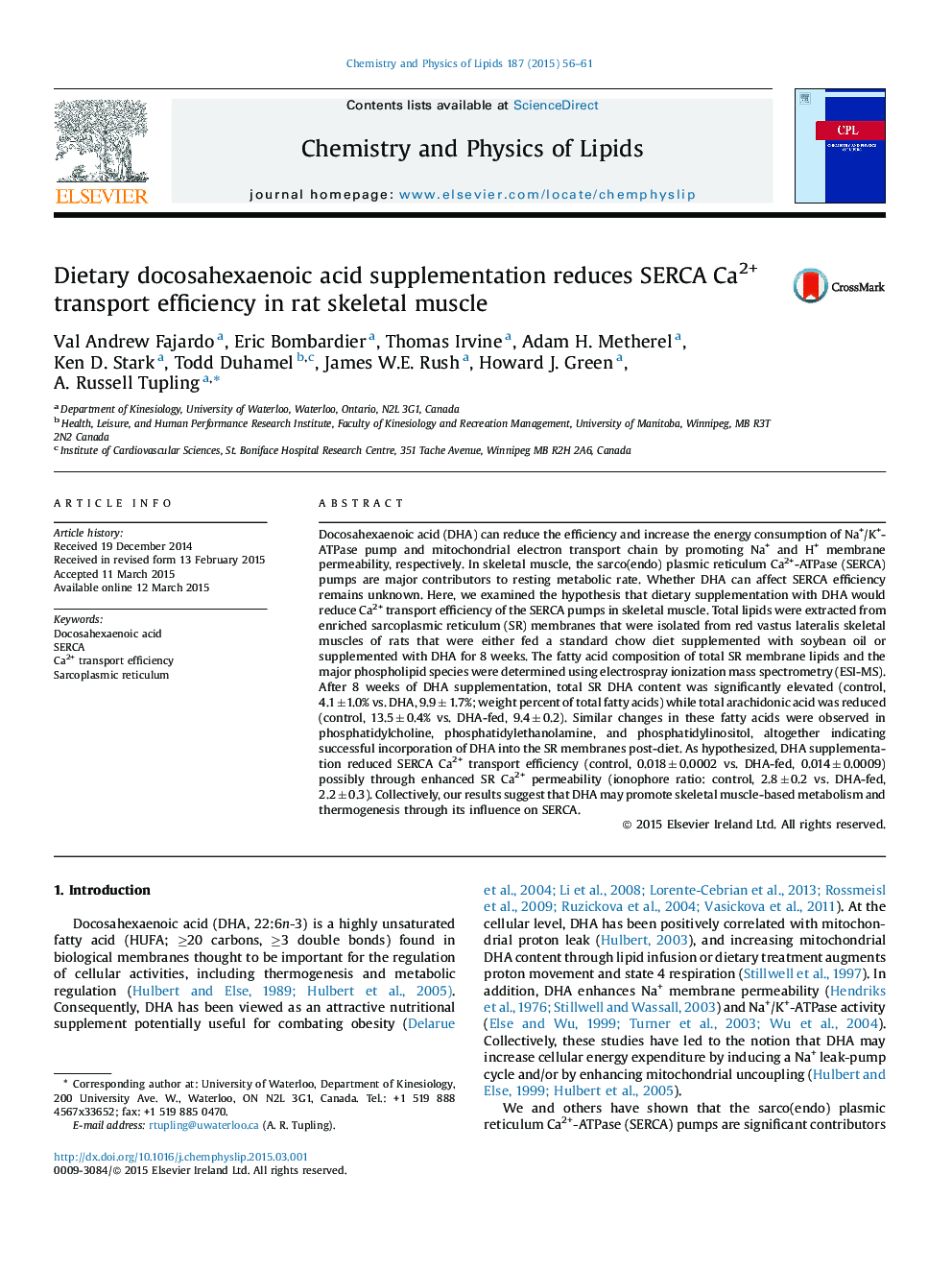| کد مقاله | کد نشریه | سال انتشار | مقاله انگلیسی | نسخه تمام متن |
|---|---|---|---|---|
| 1251870 | 1496290 | 2015 | 6 صفحه PDF | دانلود رایگان |

• DHA increases cellular energy expenditure and has been viewed as an attractive nutritional tool for combating obesity.
• Dietary DHA supplementation increases total DHA content in skeletal muscle sarcoplasmic reticulum membranes.
• Dietary DHA supplementation lowers SERCA Ca2+ transport efficiency in skeletal muscle.
• These results suggest that DHA may increase energy expenditure through effects on Ca2+ cycling in skeletal muscle.
Docosahexaenoic acid (DHA) can reduce the efficiency and increase the energy consumption of Na+/K+-ATPase pump and mitochondrial electron transport chain by promoting Na+ and H+ membrane permeability, respectively. In skeletal muscle, the sarco(endo) plasmic reticulum Ca2+-ATPase (SERCA) pumps are major contributors to resting metabolic rate. Whether DHA can affect SERCA efficiency remains unknown. Here, we examined the hypothesis that dietary supplementation with DHA would reduce Ca2+ transport efficiency of the SERCA pumps in skeletal muscle. Total lipids were extracted from enriched sarcoplasmic reticulum (SR) membranes that were isolated from red vastus lateralis skeletal muscles of rats that were either fed a standard chow diet supplemented with soybean oil or supplemented with DHA for 8 weeks. The fatty acid composition of total SR membrane lipids and the major phospholipid species were determined using electrospray ionization mass spectrometry (ESI-MS). After 8 weeks of DHA supplementation, total SR DHA content was significantly elevated (control, 4.1 ± 1.0% vs. DHA, 9.9 ± 1.7%; weight percent of total fatty acids) while total arachidonic acid was reduced (control, 13.5 ± 0.4% vs. DHA-fed, 9.4 ± 0.2). Similar changes in these fatty acids were observed in phosphatidylcholine, phosphatidylethanolamine, and phosphatidylinositol, altogether indicating successful incorporation of DHA into the SR membranes post-diet. As hypothesized, DHA supplementation reduced SERCA Ca2+ transport efficiency (control, 0.018 ± 0.0002 vs. DHA-fed, 0.014 ± 0.0009) possibly through enhanced SR Ca2+ permeability (ionophore ratio: control, 2.8 ± 0.2 vs. DHA-fed, 2.2 ± 0.3). Collectively, our results suggest that DHA may promote skeletal muscle-based metabolism and thermogenesis through its influence on SERCA.
Journal: Chemistry and Physics of Lipids - Volume 187, April 2015, Pages 56–61